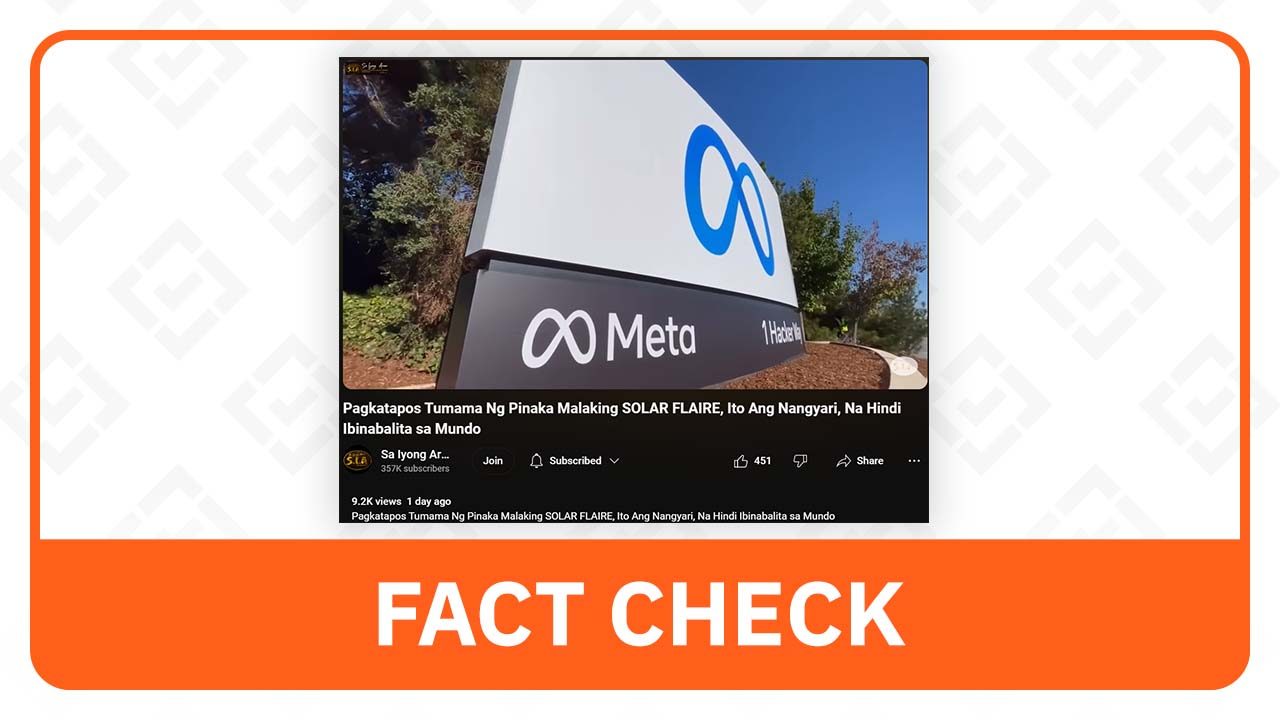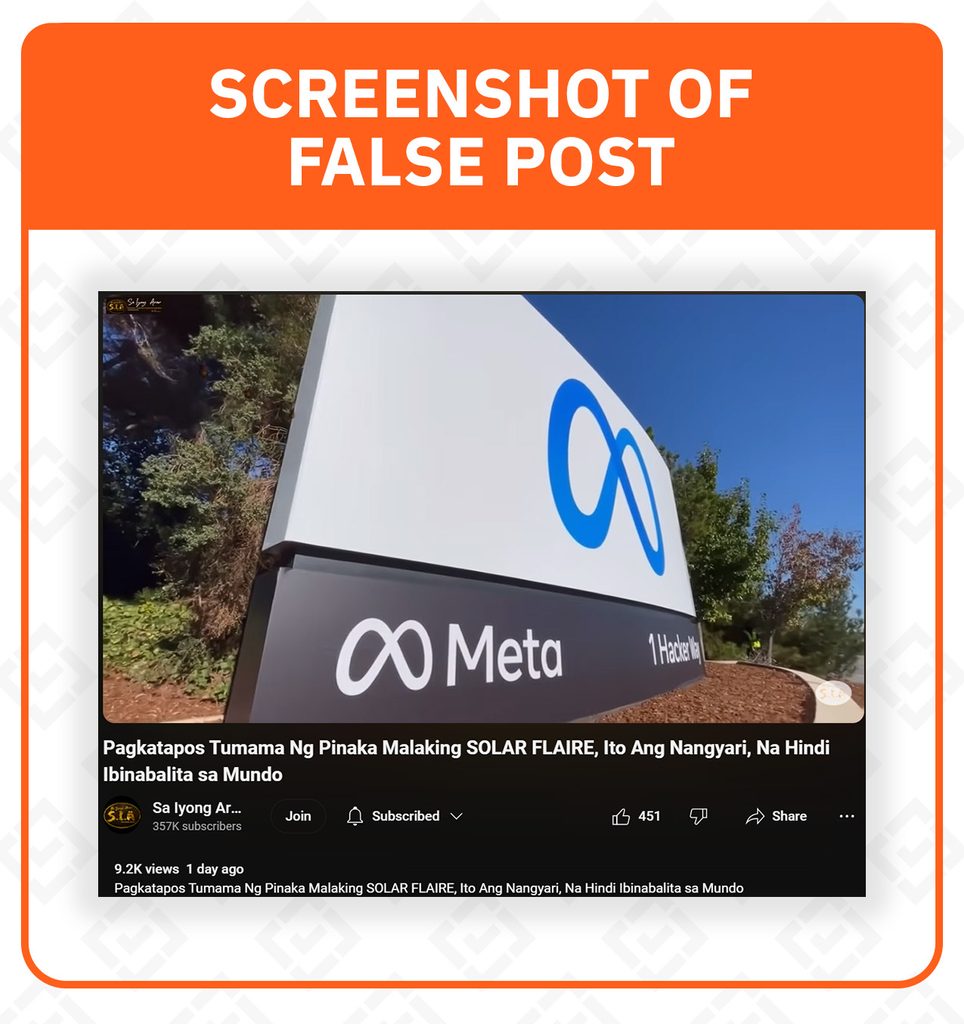SUMMARY
This is AI generated summarization, which may have errors. For context, always refer to the full article.

Claim: Meta’s social media platforms Instagram, Facebook, and Threads suffered a worldwide outage on March 5 due to the effects of a massive solar flare.
Rating: FALSE
Why we fact-checked this: The claim was made in a YouTube video that has garnered 8,991 views, 440 likes, and 61 comments as of writing.
At the 3:42 mark of the video, the narrator says: “Ngunit sa aking inaakala, hindi ito basta basta isang shutdown, dahil hanggang ngayon hindi pa rin naglalabas ang Meta patungkol sa ano talaga ang rason kung bakit nangyari ito. Ngunit para sa akin, ito’y parang may kinalaman sa nangyari nito-nito lamang linggo, na ang pinaka malakas sa solar flare sa loob ng anim na taon ay nangyari sa ating planeta.”
(In my view, this was not just any shutdown because until now Meta has not explained the cause of the outage. To me, it seems to have something to do with what happened just this week, when the strongest solar flare in six years happened on our planet.)

The bottom line: The outage of Meta’s social media platforms was caused by “technical issues,” according to Meta Communications Director Andy Stone in an X (formerly Twitter) post on March 6.
“Earlier today, a technical issue caused people to have difficulty accessing some of our services. We resolved the issue as quickly as possible for everyone who was impacted, and we apologize for any inconvenience,” the post said.
The outage lasted for over two hours and affected 550,000 Facebook users and about 92,000 Instagram users at its peak. There have been no reports from reputable sources that stated that a solar flare or solar superstorm had anything to do with the almost two-hour-long outage.
Meta’s services also previously suffered a prolonged disruption in 2021, when Facebook, Instagram, and WhatsApp were down for more than six hours. At the time, the outage was caused by “configuration changes on backbone routers.”
Solar storms explained: Solar magnetic storms, also known as coronal mass ejections, occur when the sun releases bursts of plasma. The strongest flares, when directed at the Earth, can disrupt satellites, communication systems, and even power grids. Solar activity is at its peak during a period known as the solar maximum. According to the US National Oceanic and Atmospheric Administration (NOAA)’s Space Weather Prediction Center, the sun will reach its peak activity between January and October 2024, in the 25th solar cycle.
Recent solar activity: Two major solar flares occurred earlier this year. The flares erupted from the sun beginning in the late afternoon of February 21 until February 22. The levels of the flares reached an R3 (Strong) rating, according to NOAA’s Space Weather Prediction Center.
In a post on February 26, NOAA said: “While solar flares can affect communication systems, radar, and the Global Positioning System, based on the intensity of the eruption and associated phenomena, it is highly unlikely that these flares contributed to the widely reported cellular network outages.”
However, the February 21 and 22 solar flares had nothing to do with the Meta outage that occurred on March 5.
Solar flares can reach Earth in minutes while its accompanying coronal mass ejections (CMEs) usually take at least a day to reach the planet, a Washington Post article said. Both solar flares and CMEs can affect communication systems here on Earth.
Rappler has debunked a similar claim from the same user that a solar superstorm would cause a global internet shutdown in 2024. – Katarina Ruflo/Rappler.com
Katarina Ruflo is a graduate of Rappler’s fact-checking mentorship program. This fact check was reviewed by a member of Rappler’s research team and a senior editor. Learn more about Rappler’s fact-checking mentorship program here.
Keep us aware of suspicious Facebook pages, groups, accounts, websites, articles, or photos in your network by contacting us at factcheck@rappler.com. Let us battle disinformation one Fact Check at a time.
Add a comment
How does this make you feel?
There are no comments yet. Add your comment to start the conversation.